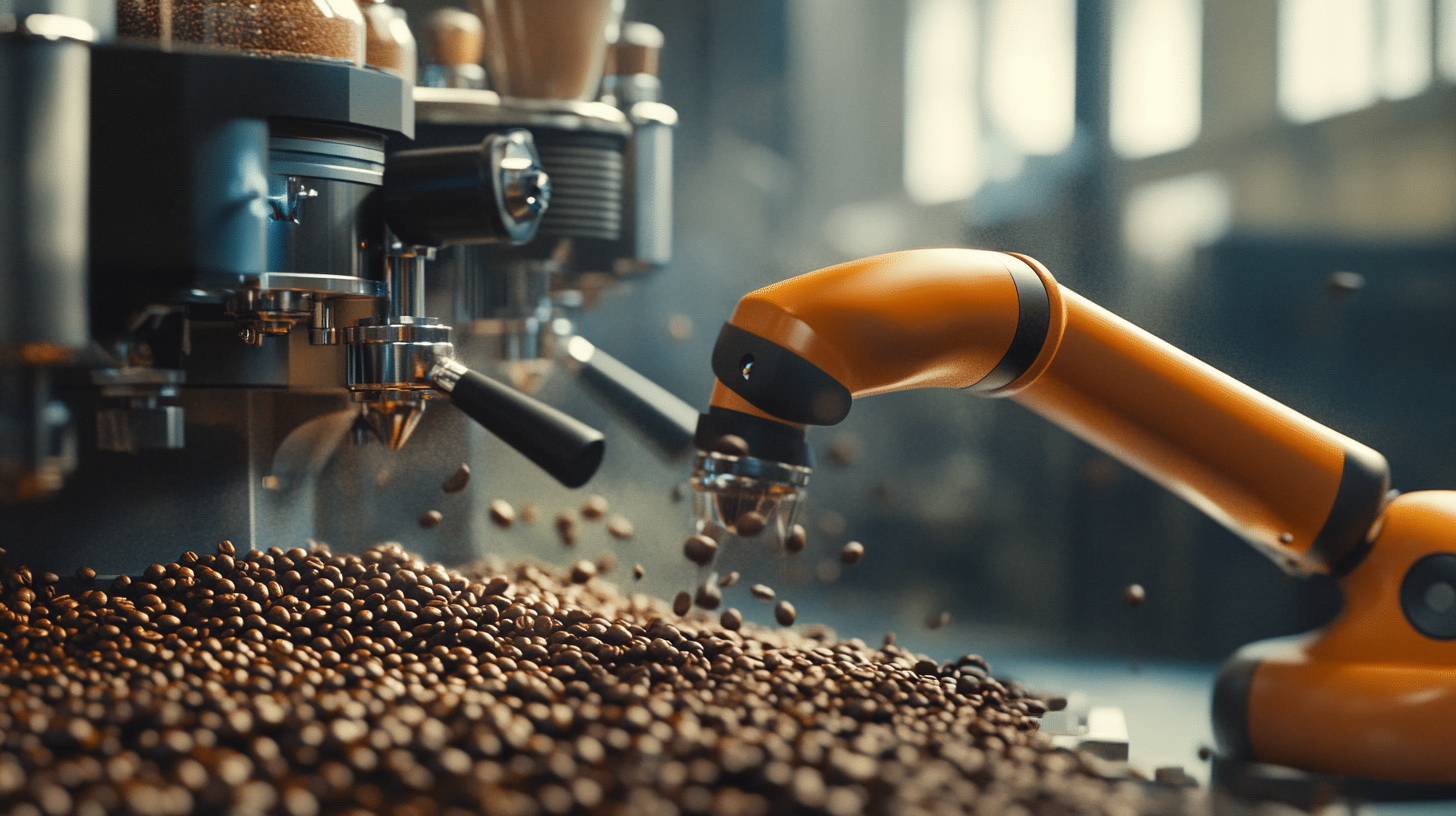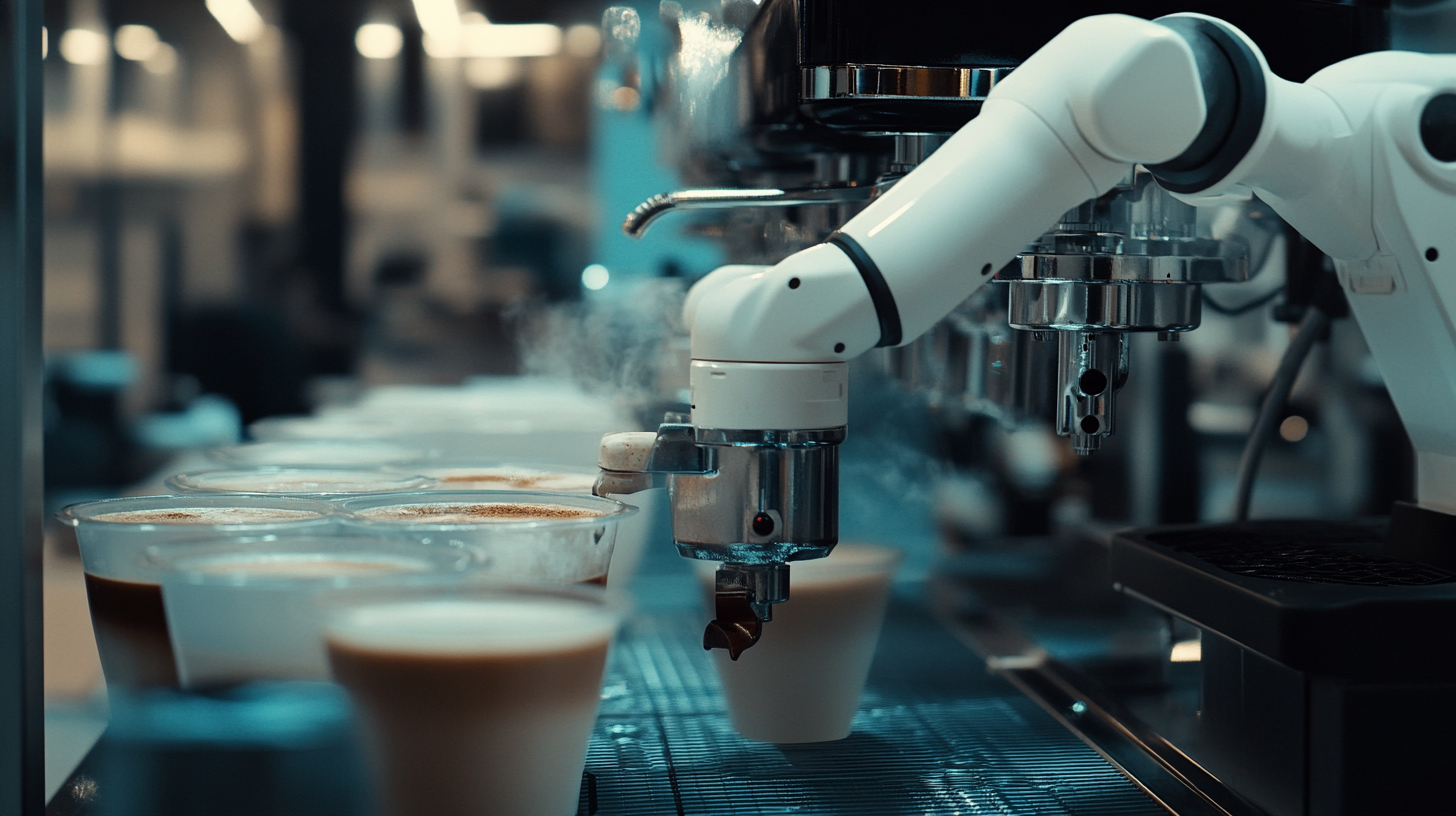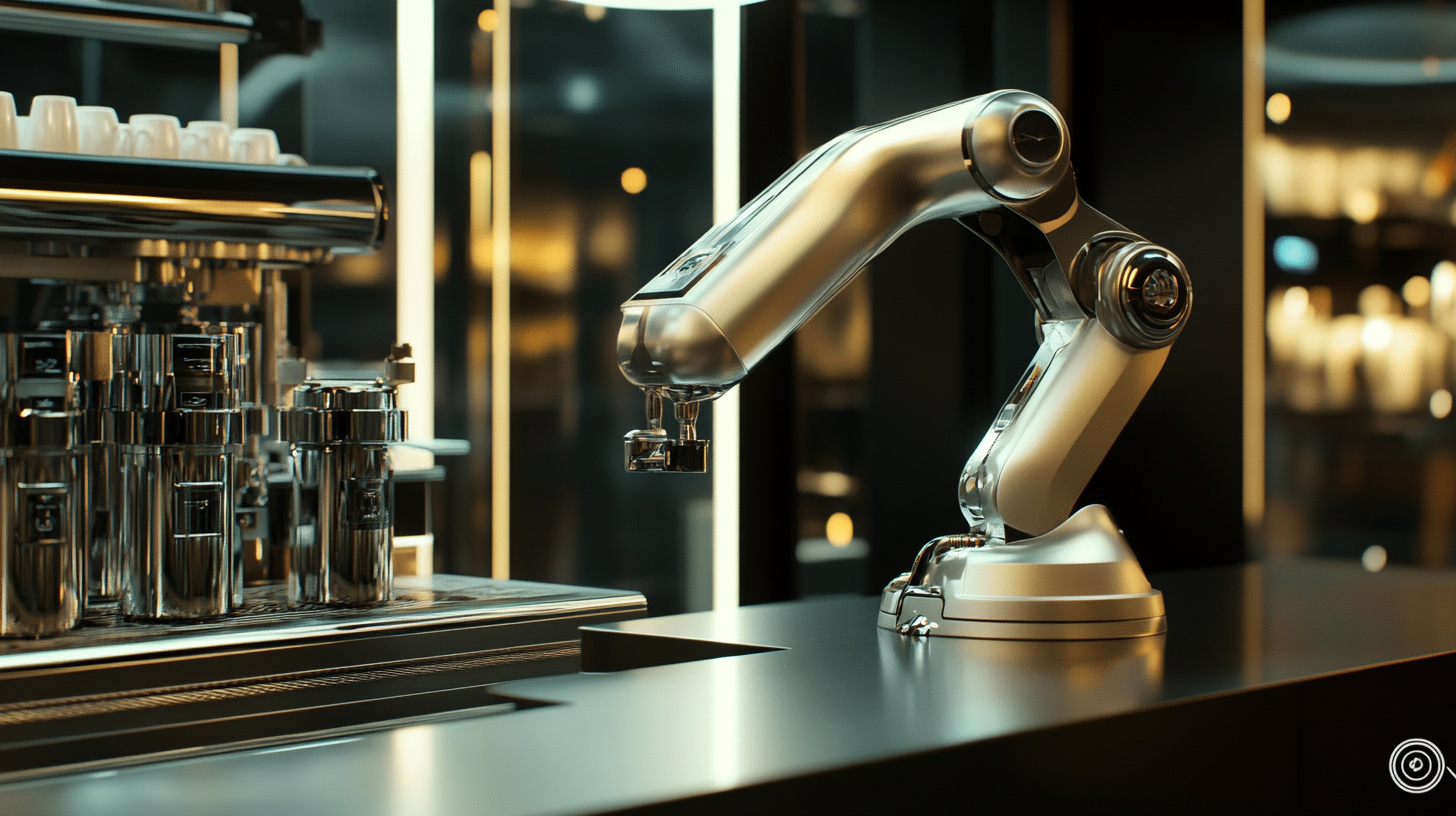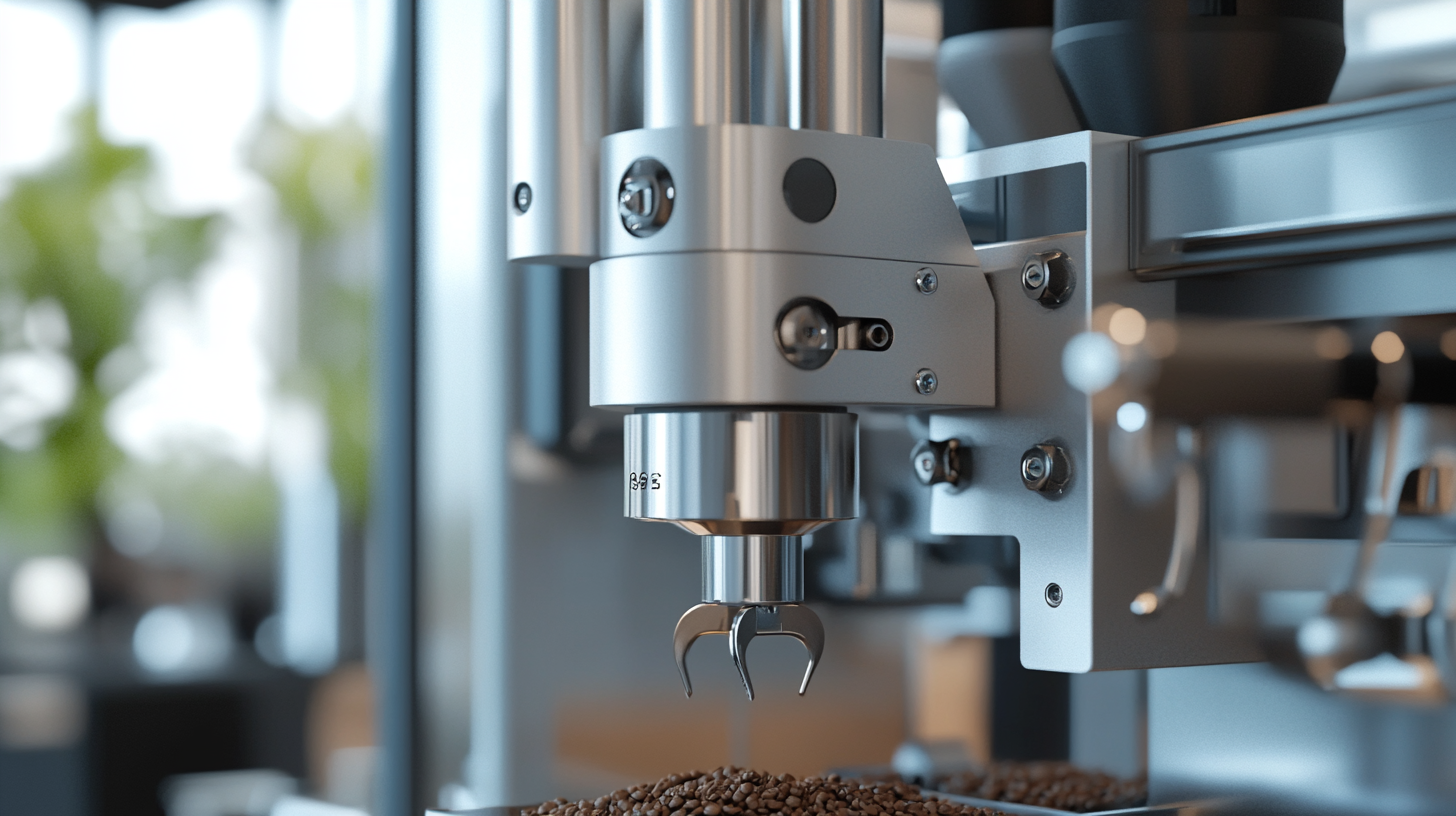Revolutionizing Beverage Production in 2025 with Coffee Robot Machines and Strategies for Global Buyers
In recent years, the beverage production industry has witnessed a technological renaissance, with innovations reshaping traditional processes and elevating consumer experiences. Among these advancements, the introduction of Coffee Robot Machines stands out as a pivotal development. According to a report by Grand View Research, the global coffee machine market is expected to reach $10.98 billion by 2025, propelled by the growing demand for automation and convenience in coffee preparation. This rise in automated solutions is not merely a trend; it reflects a profound shift in how consumers and producers approach coffee, aiming for efficiency without compromising quality.
As we look toward 2025, global buyers must adapt to these transformative changes in beverage production. The integration of Coffee Robot Machines into commercial settings promises cost reductions, increased consistency, and improved customer satisfaction. A study by Allied Market Research indicated that the global coffee market is projected to grow at a compound annual growth rate (CAGR) of 4.4% from 2019 to 2026, highlighting the importance of adopting innovative strategies to remain competitive in a rapidly evolving landscape. Embracing these technologies will not only enhance operational capabilities but also align with emerging consumer trends that favor automation and personalization in their beverage choices.

The Rise of Coffee Robot Machines: Transforming Beverage Production by 2025
The coffee industry is witnessing a revolutionary shift as we approach 2025, largely driven by advancements in technology and the rise of coffee robot machines. These automated systems are not just enhancing the consistency and quality of beverage production but also redefining the overall experience for both producers and consumers. By integrating artificial intelligence and precision engineering, coffee robot machines are capable of brewing the perfect cup, every time, which is critical in a market that values quality and efficiency. As the demand for specialty coffee continues to soar globally, these machines offer a sustainable solution to the challenges faced by traditional coffee production methods. They significantly reduce human error and labor costs, allowing businesses to allocate resources more effectively. Moreover, such automation empowers global buyers to maintain supply chain consistency, meeting the ever-evolving consumer preferences with agility. The ability to track and analyze production data in real-time further enhances operational efficiency, ensuring that each batch meets the highest standards. This technological transformation is not merely about mechanization; it symbolizes a shift in consumer expectations. Today's coffee lovers seek not only quality but also authenticity and transparency in their beverage choices. Coffee robot machines can provide detailed insights into the brewing process, allowing consumers to appreciate their coffee on a deeper level. As we look towards 2025, it is clear that the fusion of technology and beverage production will continue to evolve, offering exciting opportunities for innovation and growth in the coffee industry.

Impact of Automation on Coffee Quality and Consistency in Production
The advancement of automation in beverage production, particularly in the coffee industry, is poised to transform how coffee is produced, ensuring higher quality and consistency. As coffee robot machines become more prevalent in production lines, they bring precision and repeatability to the brewing process that manual methods often struggle to achieve. These machines are programmed to maintain optimal brewing conditions—such as water temperature, grind size, and extraction time—tailored to each coffee bean varietal. This level of control helps to extract the most desirable flavors and aromas, enhancing the overall drinking experience.
Moreover, automation in coffee production addresses the challenges of scaling operations while maintaining quality. Large-scale producers can replicate artisanal techniques across thousands of batches, ensuring that each cup of coffee reaches the consumer with the same fresh taste and high standard. By minimizing human error and inconsistencies, coffee robot machines not only improve production efficiency but also help preserve the integrity of the coffee. This focus on quality will cater to the rising expectations of global coffee drinkers, who increasingly seek premium and consistent experiences in every sip.
As coffee grows more popular, especially in global markets, the importance of quality and consistency becomes critical for producers looking to maintain customer loyalty. Automated systems not only meet these demands but are also capable of analyzing data in real-time, allowing producers to make quick adjustments to brewing processes. This agility helps to refine flavors and adapt to changing consumer preferences, ultimately revolutionizing the landscape of coffee production by aligning technological advancements with artisanal craftsmanship.

Market Trends: Global Demand for Automated Coffee Solutions Soars
As the global demand for automated coffee solutions continues to soar, the beverage production landscape is set to undergo significant transformation by 2025. The rise of innovative coffee robot machines is not just a passing trend; it is reshaping how coffee is produced, marketed, and consumed. According to industry reports, the automated coffee solutions market is experiencing unprecedented growth, as convenience and efficiency become paramount for both consumers and coffee businesses alike.
The paper cup market, which serves as a crucial component of the beverage industry, is also witnessing substantial expansion. In 2024, the global paper cup market is valued at approximately $14.1 billion, with a projected CAGR of 4.1%. By 2034, this figure is expected to reach $21.1 billion. This growth can largely be attributed to the proliferation of specialty coffee shops and independent cafés, which cater to an increasingly quality-conscious consumer base that prioritizes both taste and sustainability. The emphasis on eco-friendly packaging solutions is further fueling the transition towards paper cups over traditional plastic alternatives.
In addition to the focus on coffee solutions, the secondary packaging market is also evolving, driven by consumer preferences and regulatory changes. The market is segmented by materials including plastic, paper, and metal, as well as product types such as boxes, film, and mailing bags. The increasing need for efficient and sustainable packaging solutions positions companies to capitalize on emerging trends in beverage production, highlighting the interconnectivity between packaging innovation and the evolving coffee market.

Strategic Insights for Global Buyers: Navigating the Coffee Tech Landscape
As the coffee industry continues to evolve, strategic insights into the coffee tech landscape are crucial for global buyers in 2025. With the rising consumer demand for specialty coffee and sustainable production methods, the deployment of advanced coffee robot machines has become increasingly imperative. A recent report by Mordor Intelligence reveals that the global coffee machine market is projected to reach USD 4.72 billion by 2025, growing at a compound annual growth rate (CAGR) of over 7.5%. This growth reflects a significant shift towards automation and precision in beverage production, meeting the needs of both consumers and producers alike.
Coffee robot machines are not just a trend; they represent a fundamental change in how coffee is sourced, produced, and delivered. These machines enhance efficiency, reduce labor costs, and minimize human error, contributing to a product that consistently meets high standards. A Technavio study forecasts that the integration of AI in coffee production could lead to operational cost savings of up to 25% for manufacturers. For global buyers, understanding how to navigate this coffee tech landscape is vital, as these machines offer a competitive edge in quality assurance and production scalability.
Furthermore, sustainability has emerged as a key driver in the beverage industry. The use of robotic technology allows for precision farming practices that can reduce waste and enhance the sustainability of coffee production. According to a report by the International Coffee Organization, 60% of coffee buyers now prioritize sustainable sourcing in their purchasing decisions. By leveraging coffee robot machines, buyers can align their sourcing strategies with these sustainability goals, ultimately leading to a positive impact on the environment and society while meeting the demands of an ever-evolving market.
Sustainability and Efficiency: The Role of Coffee Robots in Eco-Friendly Production
As the world moves towards a more sustainable future, the coffee industry is not being left behind. In 2025, the introduction of coffee robot machines promises to revolutionize beverage production by prioritizing sustainability and efficiency. These innovative machines are designed to minimize waste and reduce the carbon footprint of coffee production. According to a recent report from the World Economic Forum, implementing automation and robotics in manufacturing can lead to a 20% reduction in energy consumption, making coffee production not only more efficient but also more eco-friendly.
The role of coffee robots extends beyond mere automation; they are equipped with advanced analytics that allow for real-time monitoring of resource usage. This feature supports manufacturers in optimizing their operations, thus preventing excess resource consumption. Recent findings from the Sustainable Coffee Challenge indicate that integrating smart technologies in coffee production can reduce water usage by up to 40%. This is a significant leap towards achieving sustainability targets, especially in regions where water scarcity is a pressing issue.
Moreover, collaborative robots (cobots) are setting a new standard in the manufacturing landscape. As companies like Delta launch these technologies in markets such as India, they showcase a commitment to sustainable practices that can be mirrored across the globe. As reported during the ELECRAMA 2025 exhibition, the deployment of these robots not only enhances operational efficiencies but also promotes greener practices that align with the ethos of a circular economy. The synergy between automation, sustainability, and efficiency is paving the way for a new era in coffee production, where eco-friendly practices are seamlessly integrated into everyday operations.
